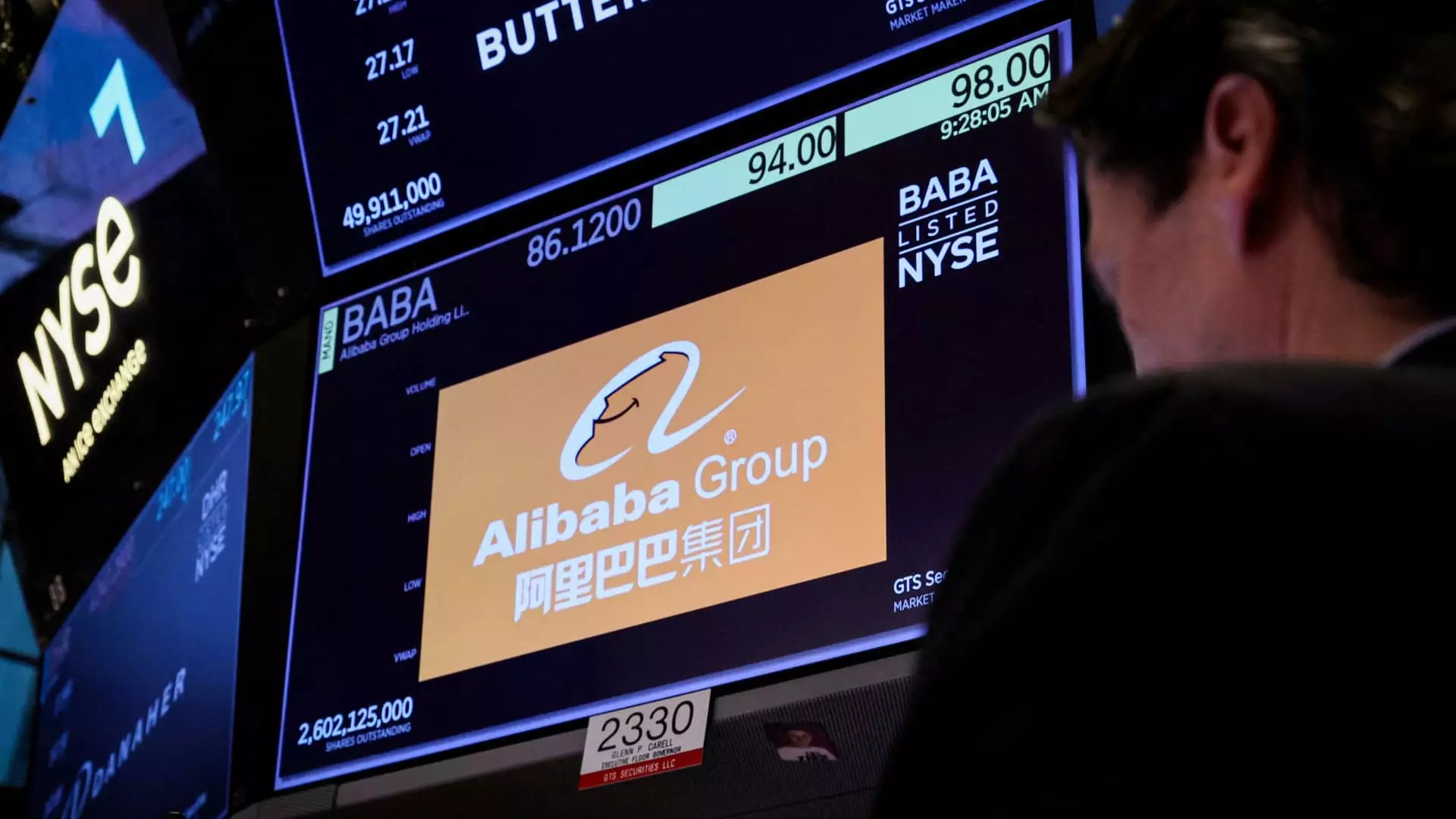In a remarkable recovery, Alibaba has captured the attention of investors with its stock soaring nearly 70% in early 2025. This surge has reinvigorated discussions around the tech giant, particularly concerning its advancements in artificial intelligence (AI). Despite facing substantial challenges in recent years, Alibaba’s latest financial announcements paint a picture of resilience. The company reported a staggering triple-digit growth in its AI-related product revenue for six consecutive quarters, showcasing not only a strategic pivot but also a robust demand for its technological innovations.
In particular, Alibaba’s Qwen AI model has started to emerge as a formidable competitor to established players in the field, notably challenging DeepSeek. An important milestone was achieved when Alibaba secured a contract to supply its products for iPhones sold in China, further solidifying its position in the tech landscape. This momentum suggests a significant shift in the company’s operational focus, aligning itself with the surging interest and investment in AI technology.
Another noteworthy development is the re-emergence of Alibaba’s founder, Jack Ma, who has maintained a relatively low profile amidst political scrutiny in China. Ma’s public appearances have become symbolic of Alibaba’s enduring legacy and the evolving landscape of Chinese entrepreneurship. His recent presence at a meeting with President Xi Jinping, which included key figures from the tech industry, indicates a potential thaw in the relations between major technology companies and the Chinese government.
Such political dynamics can have profound implications for Alibaba’s business strategy. Investors are closely watching how these relationships might influence regulatory frameworks and business operations in China’s rapidly changing tech environment. The interplay between government oversight and corporate ambition remains a critical factor affecting investor confidence.
Investor sentiment is reflected in the opinions of financial analysts, with many optimistic about Alibaba’s future. Jefferies, for example, has set a price target of $156 for the company’s shares, implying potential short-term gains. In contrast, investment firm Morgan Stanley has issued a more cautious equal-weight rating, projecting a price target of $100, which would represent a significant decline. This divergent outlook among analysts underscores the complexity of market dynamics influencing Alibaba’s trajectory.
The landscape for Chinese tech stocks is complicated by competition and market conditions. UBS has recently made strategic shifts in its model portfolio, prioritizing Alibaba over PDD, indicating a recognition of Alibaba’s positioning within the AI sector. This trend emphasizes the increasing importance of AI-related stocks in the Chinese market as investors seek to capitalize on emerging technologies.
Challenges Amidst Opportunity
Despite the positive momentum, Alibaba faces substantial challenges. The firm is grappling with rising operational costs—its capital expenditures surged to 11% of revenue in the most recent quarter compared to only 3% in the previous quarter. This increase in spending could potentially strain future profit margins and complicate financial forecasts. Furthermore, concerns about weakening consumer appetite and the overall pace of digital transformation across enterprises pose additional risks.
The competitive landscape is also shifting, with companies like Tencent and Baidu vying for dominance in the AI space. While Baidu has reported a modest growth in its AI Cloud revenue, it is still trailing in market student interest relative to Alibaba. Conversely, Tencent’s expected earnings reports could shift investor focus, further complicating Alibaba’s market strategy.
As Alibaba navigates through the complexities of the tech market and its changing role within it, investors remain watchful. The interplay of AI advancement, regulatory landscapes, and market competition will significantly shape Alibaba’s future. While the current bullish sentiment showcases an overdue resurgence, the company must address underlying challenges to sustain its momentum. The next few quarters will be critical in determining whether Alibaba can build on its recent gains or if it will falter under the weight of competition and market pressures. The ongoing evolution of the AI market will continue to be a pivotal driver for Alibaba—and, by extension, for the broader Chinese tech sector.

